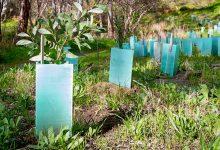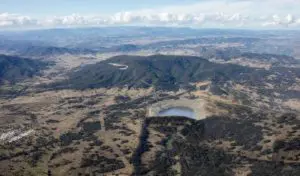Australian advisory firm Pollination Group will partner with global banking giant HSBC to facilitate up to US$3 billion (A$ 4.15 billion) of investment in ‘natural capital projects’, that will protect the environment and cut greenhouse emissions.
It’s a major deal for the Australian based Pollination Group, which is headed by Martijn Wilder, who has substantial experience in the development of energy and climate change policy both in Australia and internationally, and most recently was chair of the Australian Renewable Energy Agency, which, ironically, has been starved of funds by the Australian government.
Pollination Group was co-founded by Wilder and investment banker Tony O’Sullivan to provide specialist climate change advisory services, facilitating climate friendly investment opportunities. The group has also hired former lead Australian climate change negotiator, Patrick Suckling, as a senior partner.
The joint venture will involve the formation of HSBC Pollination Climate Asset Management, which will look to facilitate investment from major institutional investors, including sovereign wealth funds and superannuation funds, in “natural capital” projects.
This may included investments in sustainable forestry, regenerative and sustainable agriculture, water supplies, sustainable bio-fuels and nature based projects that can achieve emissions reductions.
The fund will look to raise an initial US$1 billion (A$1.38 billion) to invest in ‘nature based’ projects, followed by an additional US$2 billion (A$2.76 billion) that will be directed into a dedicated carbon credit fund that will invest in carbon abatement projects.
Pollination Group’s senior adviser Christof Kutscher, who has previously served as chairman of AXA Investment Managers, will serve as the joint venture’s executive chairman.
Wilder says the partnership with HSBC will contribute towards achieving the coals of the Paris Agreement, as well as providing targeted investment in projects that support environmental protection.
“To reach the goals set in the Paris Agreement we need to originate and fund new approaches that protect nature, at scale. In a global economy that is on a path to rapid decarbonisation, we regularly hear from investors and organisations looking for investment opportunities that will mitigate long-term climate risk,” Wilder said.
“In natural capital, we’re accelerating investment in an asset class that can help combat climate change and build biodiversity, whilst also generating long-term returns for institutional investors. Investing in the resilience of nature is investing in the resilience of the economy. Nature is the most fertile investment we have.”
Head of HSBC global asset management, CEO Nicolas Moreau, hopes that the joint venture will be able to serve institutional investors which are increasingly factoring environmental considerations into their investment portfolio designs.
Major investment managers have attracted growing calls to include climate change and environmental sustainability measures in their investment portfolios, both as a sound investment decision and risk management strategy, as well as a way to meet increasing customer demands for ethical investment options.
“Clients are increasingly focused on environmental matters and this initiative is designed to help them achieve a financial return, while at the same time creating a positive impact on the world’s biodiversity which will be felt for generations to come,” Moreau said.
“Through solutions such as this, we’re helping clients achieve their long-term investment objectives, while meeting their increasing demand to actively contribute to a more sustainable world.”
Wilder was recently replaced as chair of the Australian Renewable Energy Agency, as part of an overhaul of the agency’s board by federal energy minister Angus Taylor. As part of the board replacements, Taylor appointed a former political adviser, John Hirjee, to a board position.







